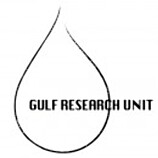
Archive: Gulf Research Blog
Blog articles from 2009 to 2012. The Gulf Research Unit is research programme based at the University of Oslo.
The meaning of ”crisis” in Kuwait
Denne artikkelen er over ti år gammel og kan inneholde utdatert informasjon.
By: Jon Nordenson
Once again, political “crisis” looms over Kuwait, with some commentators suggesting that parliament soon will be dissolved, and new elections held. Yet, in light of the past five years in Kuwaiti politics, this can hardly be termed a “crisis”. Rather, it is politics as usual.
The background for the current crisis is the alleged transfer of approximately KD 25 million ($ 91 million) from government funds to two pro-government MPs. Obviously, this is a serious issue, and in many people’s eyes a confirmation of the corruption they see in every aspect of the Kuwaiti state. Not surprisingly, the scandal has provoked many initiatives from oppositional MPs and activists.
For one thing, opposition MPs have called for an emergency session on the issue, in order to debate this particular incident and to pass new laws to prevent corruption and money laundering. According to Kuwaiti law, an emergency session must be held if at least 33 MPs sign the proposal. So far, 29 MPs have signed, with about 20 pro-government MPs rejecting the initiative, at least for now. One might question whether or not this is a wise approach on part of the government; with such serious accusations, it should be in everyone’s interest to investigate them properly. Moreover, given the recent crisis combined with a fresh report from the IMF criticizing Kuwait for not doing enough to hinder money laundering and terror-financing, new laws on these issues might be a very good idea. It should of course be noted here that the government may agree with the need for a debate on the issue as well as to review country’s legal framework, even though it does not agree on the need for an emergency session.
The scandal has provoked other initiatives as well; a website launched by activists in the country encourage MPs to sign a pledge to provide the authorities with access to their bank accounts, in order to clear themselves from any suspicion of being involved in the scandal. Many MPs have signed similar pledges on their own initiative as well. Moreover, a large demonstration against corruption is planned for the 16th of September. And, of course, the scandal has provoked new istijwabat, that is, interpellations against cabinet ministers, in this case the PM himself.
As I have written earlier, Kuwaiti MPs have a constitutional right to question cabinet ministers on a particular issue, and the questioning may be followed by a vote of confidence. Previously, these interpellations have been a constant source of “crisis” in Kuwait, in that they have provoked the resignation of ministers, the entire cabinet and even the dissolution of parliament when the minister in question stands to lose the vote of confidence. It has been, for quite a few years, the weapon of choice for the opposition. This time, the interpellation on the 25 millions comes in addition to two other interpellations already presented against the PM, and they will almost certainly be followed by a vote of no confidence.
Thus, “crisis” is looming again, and as mentioned, many commentators have predicted the dissolution of the parliament and early elections. But this in itself is nothing out of the ordinary. Since the parliament was reinstated after the war in 1992, only to parliaments have completed their 4-year terms. Since 2003, there have been held four elections in Kuwait. Accordingly, there would be nothing extraordinary about early elections, and it can hardly be said to constitute a “crisis”, as a “crisis” implies that something extraordinary has taken place.
However, this is not to say that Kuwaiti politics is not in a state of crisis. The constant bickering between parliament and government seems to prevent any real development from taking place. The government seems unable to govern an unruly parliament, while the parliament is prevented by law from governing (the Kuwaiti government is not based on a parliamentary majority, it is named directly by the Emir. The parliament for their part has largely negative powers). The result is that nothing much happens; the grand development scheme adopted by the parliament earlier has not yet materialized, in fact, the PM just ordered a report on why it has not yet materialized. And, as the statistics mentioned above clearly shows; neither party is willing to give in, and the result is deadlock and “crisis”. Moreover; the level of corruption revealed in this latest scandal is hardly an asset in Kuwait’s stated bid to become a “financial hub” in the region. In all, crisis may be a fitting description of the state of Kuwaiti politics, but the constant “crisis” between parliament and government is merely a symptom of more fundamental problems.






